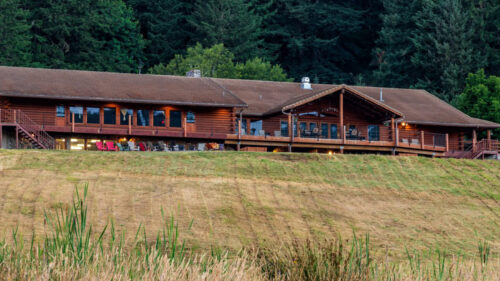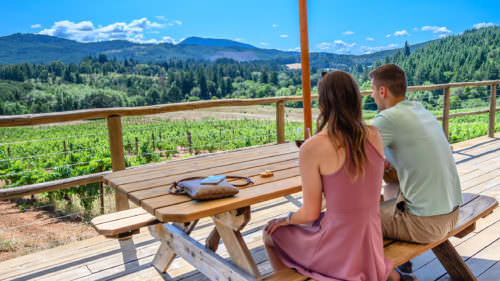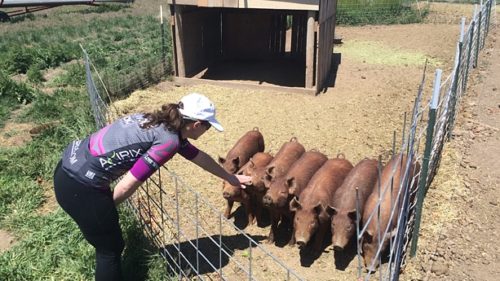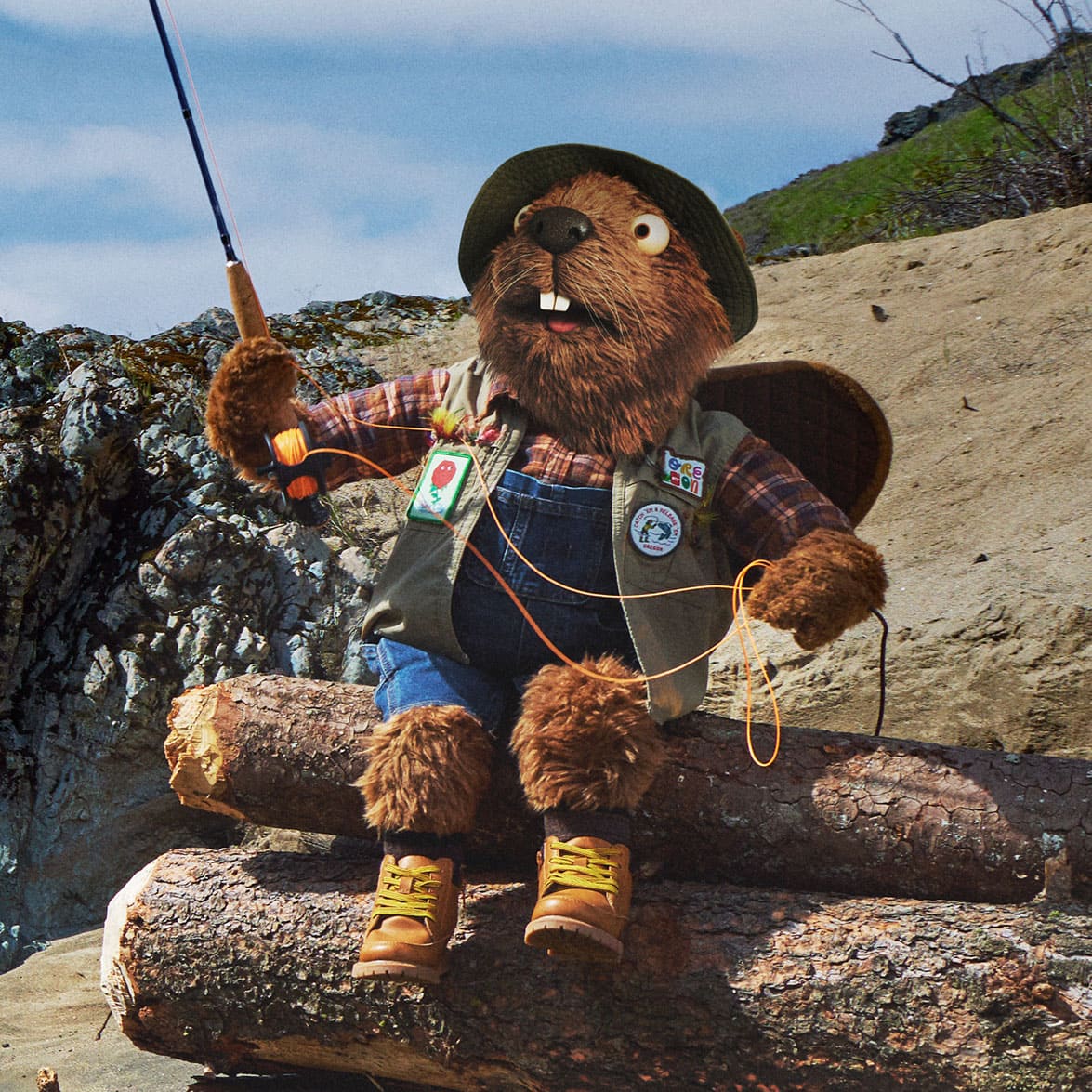Maybe you’ve seen the sweet Seussian-like creatures grazing near country roads, with their long necks, doe eyes and quirky tufts of hair sprouting between their ears like a stylish pompadour. Meet the alpaca — a curious, calm and congenial character.
Topping the list of adorable farm animals, alpacas are also notably serene. The most common sound they make is similar to humming, and gentle nose kisses are their sign of affection. Luckily, the alpaca lifestyle in Oregon is strong and growing. Oregon is home to one of the first alpaca farms in the United States, which sprung up in Hillsboro in 1984. Farmers say Oregon is a natural home for these lovely creatures — it’s not too hot, there’s little heat and humidity, and there are ample pastures for roaming.
You can meet herds in nearly every region of the state — on guided tours and vineyard retreats, ranch stays and farm dinners. Once you hang out with an alpaca and absorb their breezy nature, you can’t help but feel a little less stressed and a little more carefree. Here are several top family-friendly experiences that will turn you into an alpaca-phile in no time.
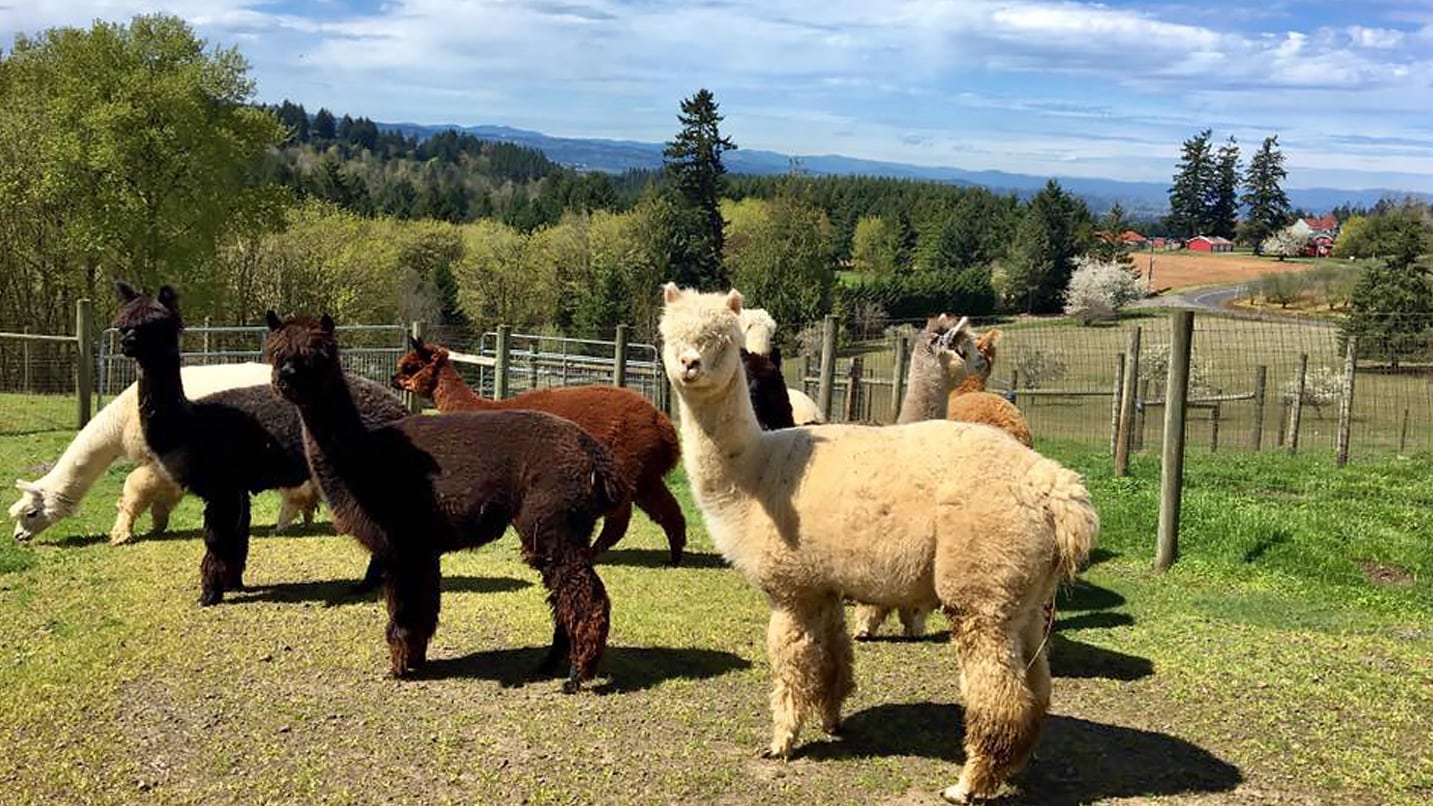
Slow Down (and Strike a Pose) in the Willamette Valley
You may wonder, what exactly is an alpaca? Alpacas are members of the camelid family, indigenous to South America. While similar to and often confused with their llama cousins, the related animals have distinct differences, explains Sue King, owner of Big Timber Alpacas near Sherwood and president of the Alpaca Association of Western Oregon.
First, alpacas are significantly smaller than llamas, almost half the size. And most often, llamas work as pack animals or as guardians for small livestock. Alpacas are primarily bred for their silky, luxurious fur, or fiber. Their fleece is as soft as cashmere, naturally water-resistant and hypoallergenic.
King met her first alpaca at the Oregon Flock & Fiber Festival in Canby. “I immediately fell in love with them,” she says. “Alpacas are really easy to care for and have such gentle and sweet personalities.” Over the years, she began breeding her alpacas for high-end fiber production — the main focus for most alpaca farmers in Oregon.
As farms look to diversify their business, many have embraced agritourism, welcoming people to meet their herd and discover firsthand why this livestock is so beloved. “When kids ask me why alpacas, my reply is because you can’t raise unicorns,” says Suzanne Campbell. “They are truly magical.”
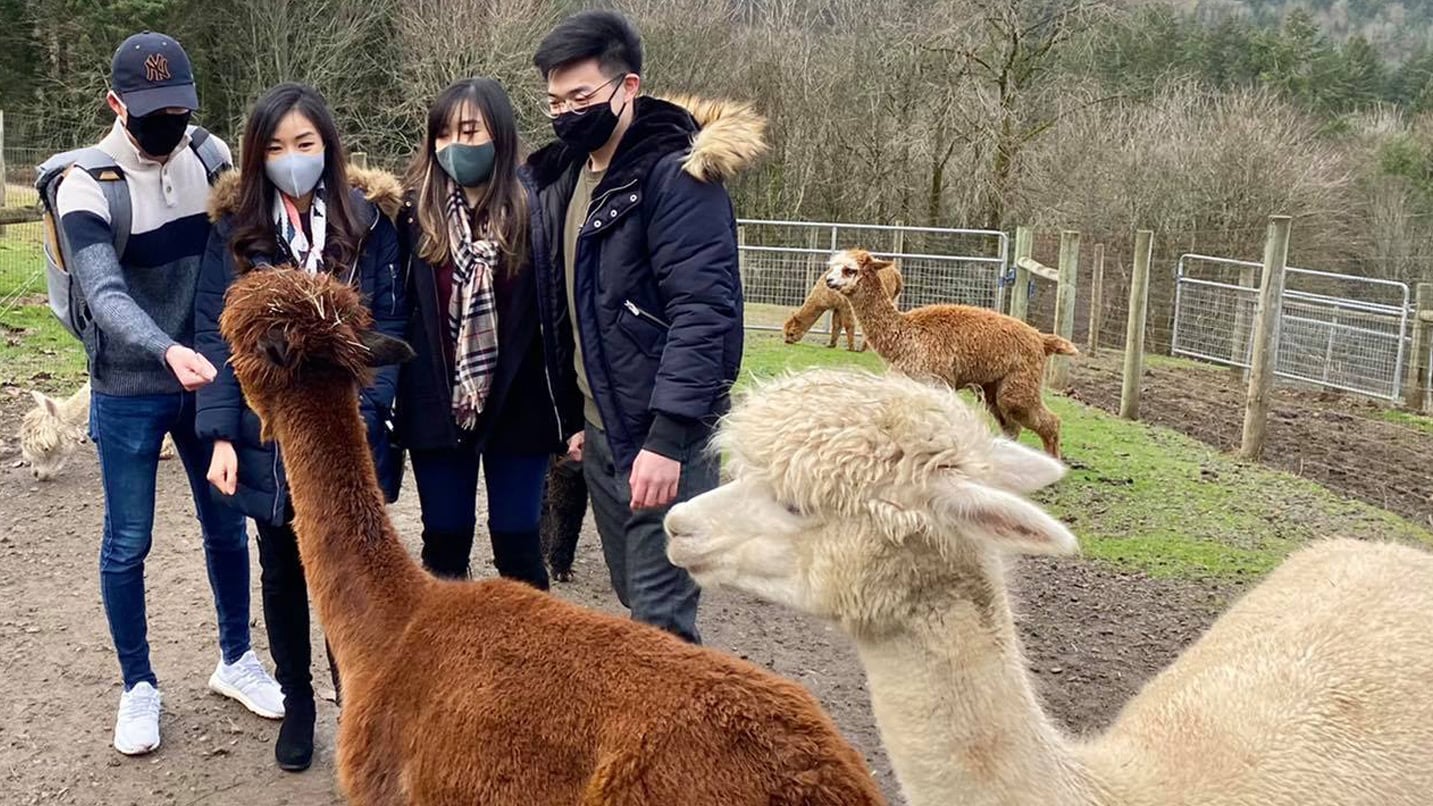
Suzanne and her husband, Doug, own Alpacas of Oregon, a charming homestead in Sherwood that’s open to visitors year-round. The couple began raising alpacas together in 2004 and, since then, have discovered the 36 farm animals enhance their day-to-day life more than they ever anticipated.
“Spending time around alpacas is very peaceful,” says Doug. “I find they get you to notice and appreciate little things, and help you slow down.” His informal tours begin with an introduction to the farm and then a meet-and-greet with the relaxed herd.
When Doug opens the alpaca pen and you find yourself standing shoulder to shoulder with the most winsome farm animals, the first thing you might notice is how calm and approachable alpacas are. “The moms and babies are really mellow,” says Doug, who names each alpaca (most often after favorite movie characters and trendy musicians).
You can feed the alpacas, pose with your favorite, or just hang with the herd and soak up the hillside and nearby vineyard views. In summer 2020, as the number of daily farm tours peaked, Doug noticed a common theme. “With so much stress and so much up in the air, a lot of visitors find comfort from the alpacas; it’s almost like a form of therapy for many people,” he says.
That’s one of the main reasons the Campbells see so many return visitors. “We have people bring friends and family back all the time,” says Doug. The farm is also a frequent stop for wine enthusiasts on a pinot pilgrimage. The property is minutes away from Alloro Vineyard, Hawks View Winery and Ponzi Vineyards.
In addition to your flurry of smartphone snapshots, you can take a memento home from the barn store, where the couple sells yarn (portioned out for knitting socks and hats), Peruvian products and hand-knit garments made by their resident fiber artist.
Continue south along Highway 99 for yet another sweet family-owned farm, Wings & A Prayer Alpacas in Amity, home to a herd of about 60 alpacas. Call ahead to schedule a visit to the farm store, where you can find silky soft socks, yarns and wools, and ask about the chance to hand-feed the animals take a guided alpaca walk through the wooded farm.
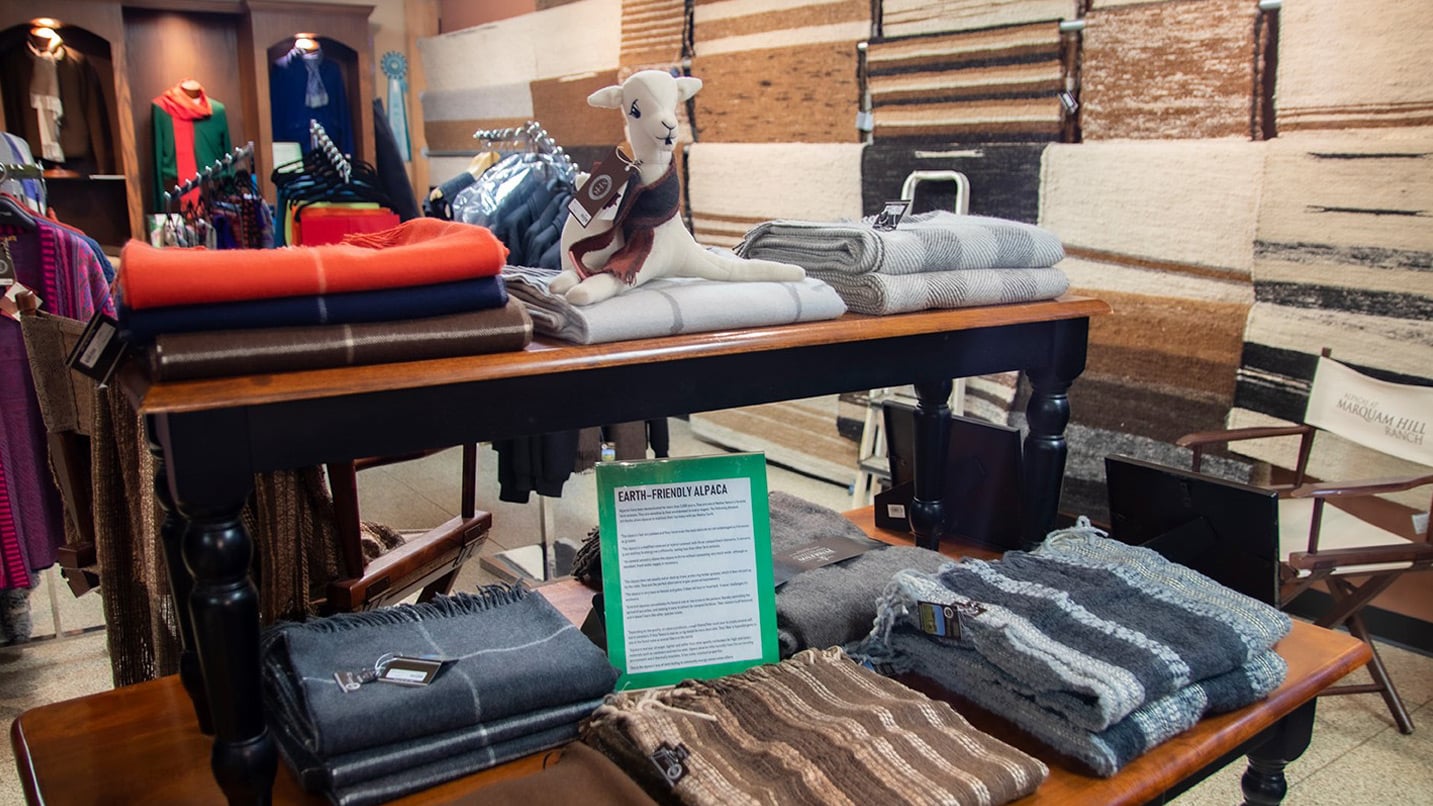
Yoga With the Herd Near Mt. Hood
For a deep dive, sign up for the intensive tour offered by Alpacas at Marquam Hill Ranch in Molalla. Essentially an Alpaca 101, the tour spans 60 to 75 minutes and covers animal husbandry, heritage, breeding and more. You’ll get to meet the herd by name, walk an alpaca on a lead and feed the 1-year-old alpacas — a truly riveting experience. You’ll sit down with a feed bowl in your lap, and in minutes, a pack of enthusiastic alpacas will streak through the barn to your bowl.
Either Bill or Jennifer Cameron (the husband-and-wife owners) will lead the tour, and both are equally excited to chat about anything and everything alpaca. You can also stop by and just watch the easygoing alpacas without a tour. “We have a lot of families who make our farm a regular stop,” says Jennifer. “They really enjoy the inquisitive nature of the alpacas.”
In their thoughtfully stocked farm store, you’ll find a rainbow of yarn, rugs, roving and elegant hand-knit items made from the resident herd’s fiber. Come spring and summer, the ranch features special events from Alpaca Yoga to an annual farm dinner with Field & Vine Events. (In addition to masks and social-distancing measures, the events limit the number of participants.)
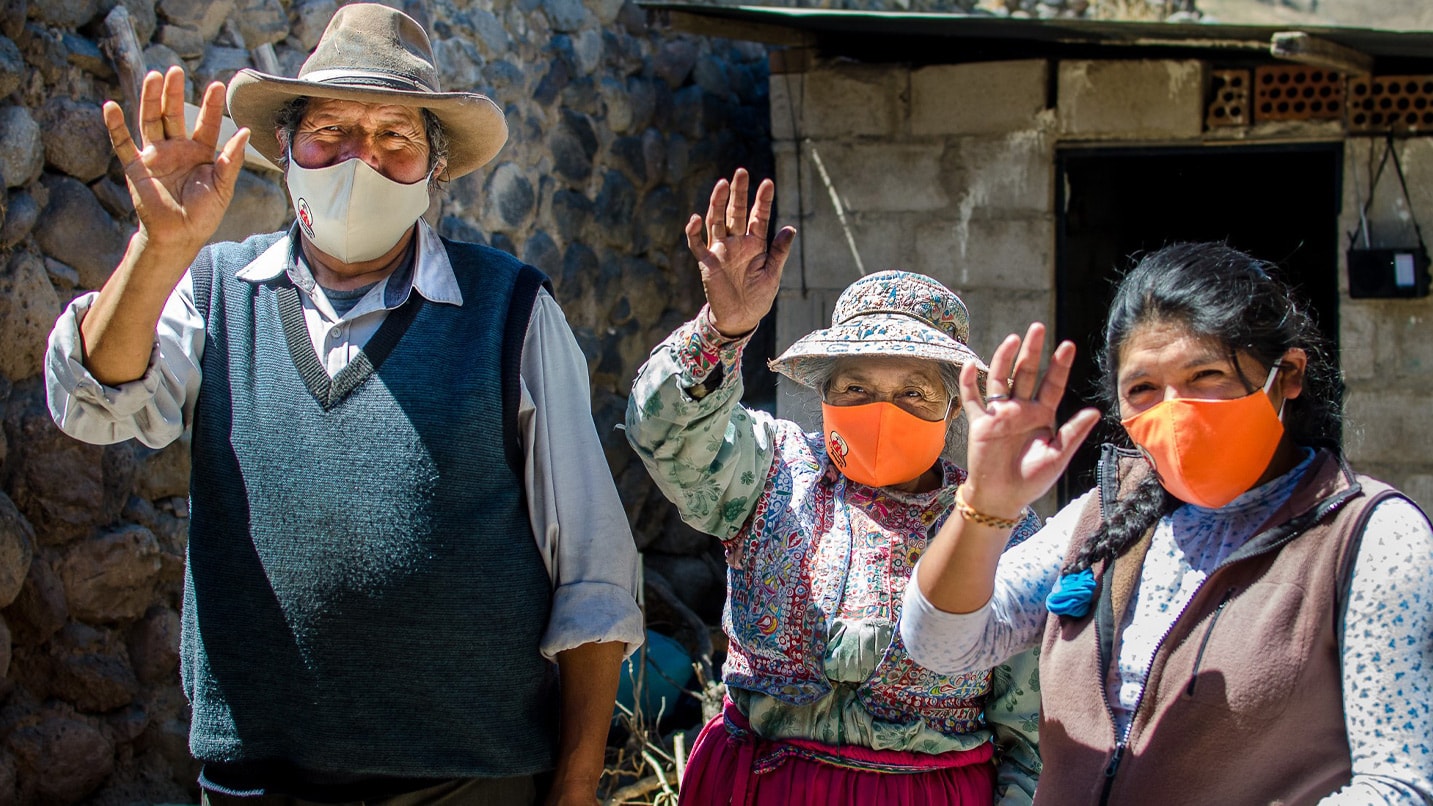
Alpacas With a Purpose in the Portland Region
The nearby Alpaca Farm & Gardens in Hillsboro is also a frequent stop for wine enthusiasts, conveniently located between the North Willamette and Chehalem Mountain winery regions. One of the first alpaca ranches in the United States, the family farm welcomes visitors by appointment to hand-feed their friendly herd and shop at the Quechua Benefit store, a nonprofit that provides economic and educational opportunities to shepherd communities in the Peruvian highlands. One hundred percent of the profits go to Quechua Benefit programs in Peru. Programs have reached more than 16,000 people in nine remote villages with face coverings, soap and educational brochures to fight the spread of COVID-19. The project also employs indigenous Quechua women who sew the masks.
Alpaca Farm & Gardens owner Mike Safley and his father brought the first alpacas to the state in 1984. His father had owned llamas for years and at one point sold his herd. “He quickly had buyer’s remorse,” says Safley says of his father. His father later heard of another llama farmer bringing some alpacas into Indiana (from Chile) and he convinced his son to buy five of the alpacas with him. The five alpacas were delivered to Eugene. “With my type-A personality, seven years later I was a fulltime alpaca farmer with over 200 animals,” says Safley says. At that time, his focus was on alpaca breeding and the show market. He became a senior show judge at competitions, served as the president of both the Alpaca Registry and the Alpaca Owners Association and founded Alpacas Magazine.
Safley’s farm was legendary and he sold highly pedigreed alpacas not only all over the country but around the world. At this time (the 1980s through early 2000s) alpacas were scarce and everyone wanted them. (First it was llamas, then alpacas became hot). Before the housing crisis in 2008, he sold a significant portion of his herd and shifted his focus from breeding to agritourism. “The smaller herd keeps my pastures in good shape,” he says. Many people who drive by the farm stop to take pictures and walk the grounds.
Ranching Dreams Near Medford
Ever dreamed of taking a dramatic leap of faith? Renate and Richard Gyuro did, and that led them to ditch their corporate careers for alpaca ranching. “I read an article in The Oregonian about a couple raising alpacas,” says Richard. “It piqued my interest and I thought, ‘We can do this.’”
The couple bought their first six alpacas and agisted (boarded, in alpaca speak) them on another farm while getting a crash course in alpaca husbandry. A year later, they got a “Godfather offer” to buy a whole herd. The next thing they knew, the couple owned 38 alpacas and no land.
Today the husband-and-wife happily own Alpacas at Lone Ranch, a majestic stretch of land in the Upper Rogue Valley about 20 minutes outside of Medford. You can catch their full story in an episode of “Start Up” on PBS. Or call ahead and get the scoop in person.
“We really enjoy our interactions with visitors,” says Richard, and he and Renate offer tours daily. You’ll start near the pastures with a short history of alpacas and other camelids. “They are curious, intelligent animals,” says Richard, and the alpacas will walk right over to you.
He explains that despite their cuteness factor, alpacas are herd animals with a strong prey instinct, so some are averse to petting on the head or hugging. “We do have our uncommonly very pettable Kim Marie,” says Richard. “She’s our classic public relations alpaca.”
Over the years, Richard finds that what most enthralls visitors is how alpacas are such quiet and peaceful companions. “It’s one of many reasons we are so thankful this is our lifestyle,” says Richard.
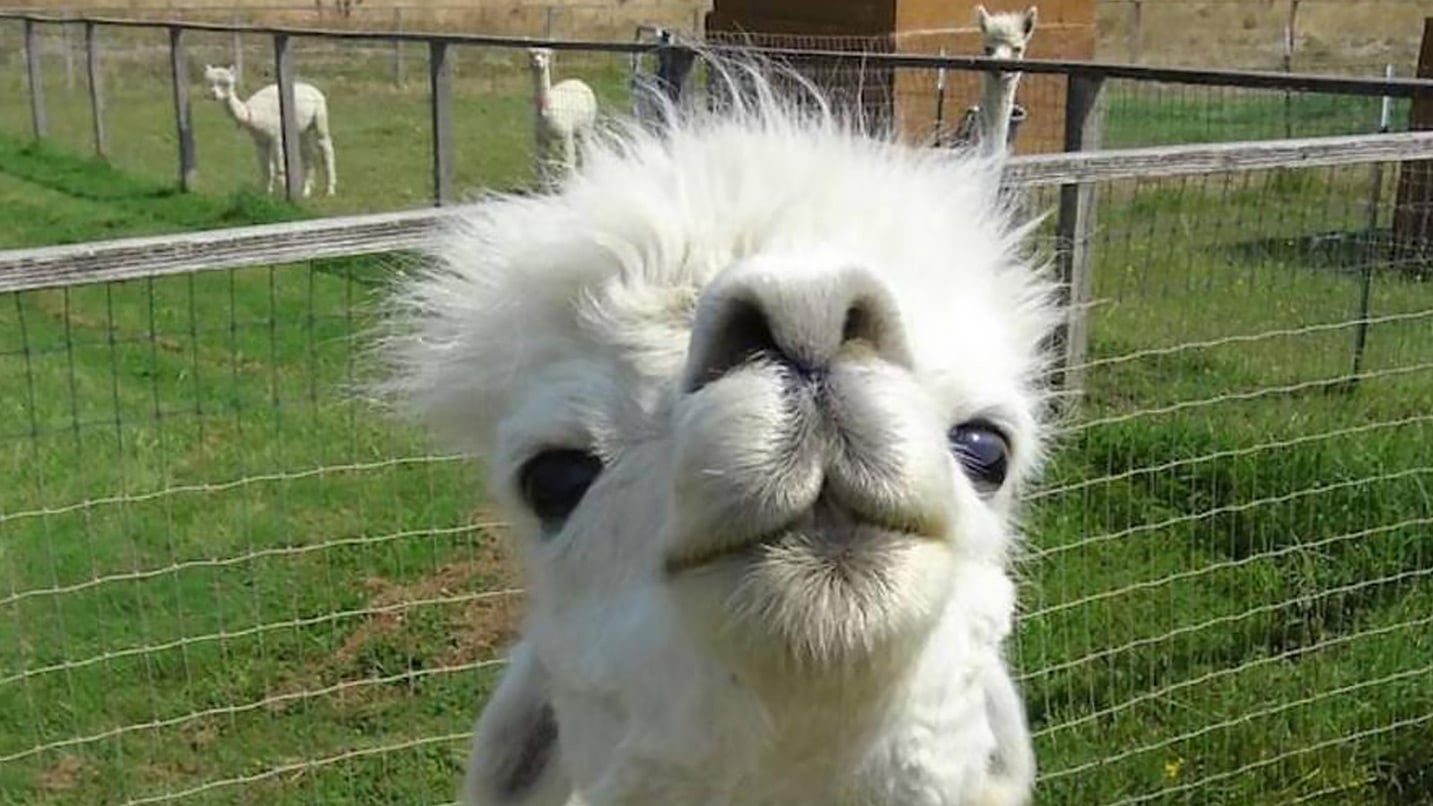
Wine Down With Alpacas in Jacksonville
For a wine and music retreat, head to the rolling hills outside historic Jacksonville. Rellik Winery & Alpaca Farm offers three cozy suites with idyllic vineyard views. Unwind on expansive walking trails that meander through apple, plum and pear orchards, as well as sloping vineyards and the alpaca pastures, where the friendly herd will mosey over to say hello.
You can also catch sight of the resident alpacas (plus one llama) from the winery tasting room while sipping a lively sparkling grenache. In addition to hosting live music events every weekend, the winery is located a few miles from the beautiful grounds of the Britt Music & Arts Festival, so check the schedule for future events when it’s safe to gather again.
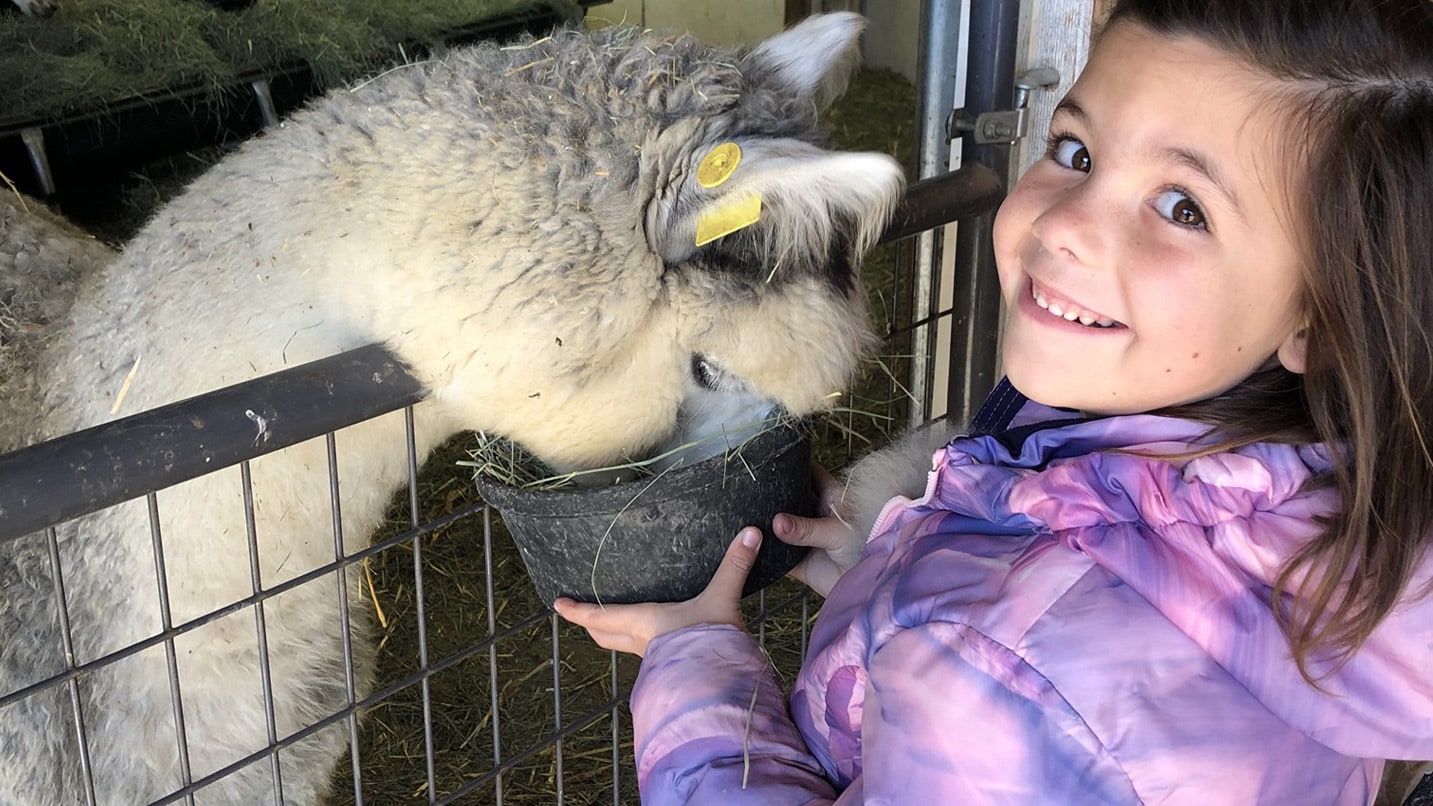
Sojourn With a Herd in Central Oregon
When Nancy Izer started her herd with six Huacaya alpacas in 2006, she never expected her ranch would grow into one of the largest in the U.S. “Alpacas are addicting,” she says. “They are such wonderful, gentle animals to work with.”
Today over 1,200 alpacas roam the 134 acres of pasture at Alpaca Country Estates Ranch and B&B, located in the high-desert community of Terrebonne.
A retired elementary school teacher, Izer always includes a stop on her tours at her schoolhouse-shaped chicken coop and weaves in fun tales of the alpaca lifestyle. You can read about the time a baby alpaca escaped in a recently published children’s book, Baby Alpaca’s Adventure, an engaging story that was written and inspired by Bend author Ann Rivera’s stay at the ranch.
In addition to guided tours, Izer runs a ranch stay and hosts seasonal classes ranging from alpaca yoga to fiber workshops, crochet circles and felting. She and her husband launched a fleece-to-fashion business in 2014, featuring luxury alpaca garments made in the United States, available at the ranch boutique and online.
An ideal city escape, the ranch easily enchants with magnificent views of the Cascade mountains and pockets of ancient juniper trees and ponderosa pines. “It’s a very tranquil, beautiful setting,” says Izer, “a paradise for four-legged creatures and not so bad for two-legged ones too,” she adds.
Adventure enthusiasts can combine an alpaca tour with the high-desert wilderness found in remote Central Oregon. At Red Oak Farms Alpacas in the small frontier town of La Pine, Ken and Nancylee Evans tend to 35 alpacas on their 10-acre property. The couple found its way to the alpaca lifestyle first after attending a llama show. “My wife is 5-foot-3, so the llamas were too big,” says Ken. But alpacas ended up a perfect fit.
In addition to breeding and showing their herd, the couple offers free tours that include feeding the alpacas; a visit to the shearing and fiber room; and access to the on-site store where you can find yarn, roving, raw fleece and rugs. “We want people to enjoy the animals and stay as long as they want,” says Ken. And if you are traveling by RV, you can stay a night (or two or three) on their farm when you book through Harvest Hosts.
